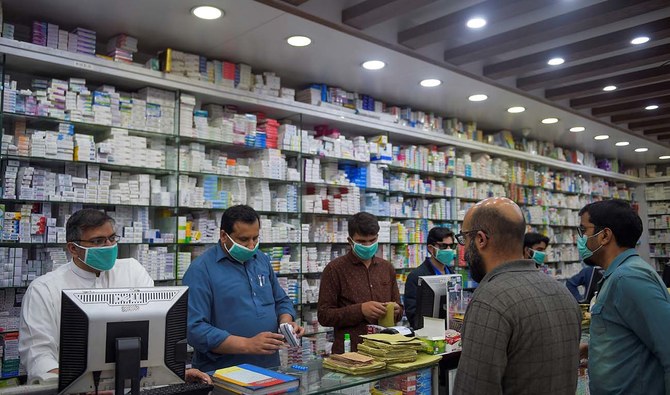KARACHI: The Pakistan Pharmaceutical Manufacturers Association (PPMA) on Monday called on the federal government to allow an increase in the prices of 262 medicines, the latest in a stand-off with an industry struggling to stem losses from soaring inflation and a weakened currency.
Since June, local and multinational companies have been lobbying the government to raise prices through industry lobby groups like the Pharma Bureau and the PPMA.
Pakistan last approved a rise of up to 20 percent in retail prices of general medicines and 14 percent for essential ones in April, prompting immediate criticism from drug manufacturers who said the increases were too small. Associations have been demanding an across-the-board 39 percent rise, warning that the industry could otherwise collapse.
In its statement on Monday, PPMA said a delay in the price hike would mean “more essential drugs wouldn’t be available in the local market.”
“Revision in prices of these medicines had become highly essential as the last time such an increase had been allowed by the government the value of the dollar was less than Rs 200,” PPMA Central Chairman Mian Khalid Misbah-ur-Rehman was quoted in the statement as saying.
On Monday, the dollar was worth Rs281.75 for buying and Rs284.75 for selling, according to the Exchange Companies Association of Pakistan.
“In addition to the phenomenal increase in the dollar exchange rate, the production cost of medicines has increased manifold due to record inflation,” Rehman said.
Pakistan’s weekly inflation rate spiked to the highest level in six months in the week ending on December 7, driven by surging food and fuel prices, as per data released by the government.
Rehman warned that more multinational drug producers would be forced to wind up their businesses if the government kept delaying the decision to allow an increase in the prices of medicines.
“The number of multinational pharmaceutical companies in Pakistan has already significantly decreased over the past many years as any further reduction in their number will go against the current efforts of the government to attract foreign investment to Pakistan,” the PPMA chairman said.
Data from the statistics bureau released in March showed the pharma industry had cut overall output by 55 percent since June 2022.
Over 100 essential drugs were already unavailable in the market, Rehman added:
“The patients in such a scenario rely on spurious and smuggled drugs when the locally produced medicines aren’t available in the market.”
PPMA said the sustainability of the Pakistani pharmaceutical industry, which met up to 95 percent demand for medicines in the country, would be “seriously threatened” if the government didn’t review its drug pricing system.
“We have been constantly calling upon the government to pay heed to the ground realities affecting the drug producers in the country as the long-pending hardship cases of medicines should be expeditiously disposed of as per the law,” the PPMA chairman said.
Pakistan’s annual pharmaceutical exports stand at around$300 million, which Rehman said could be increased to $5 billion if the government “consistently implements favorable policies for the drug industry allowing it to adopt state-of-the-art production technologies.”












